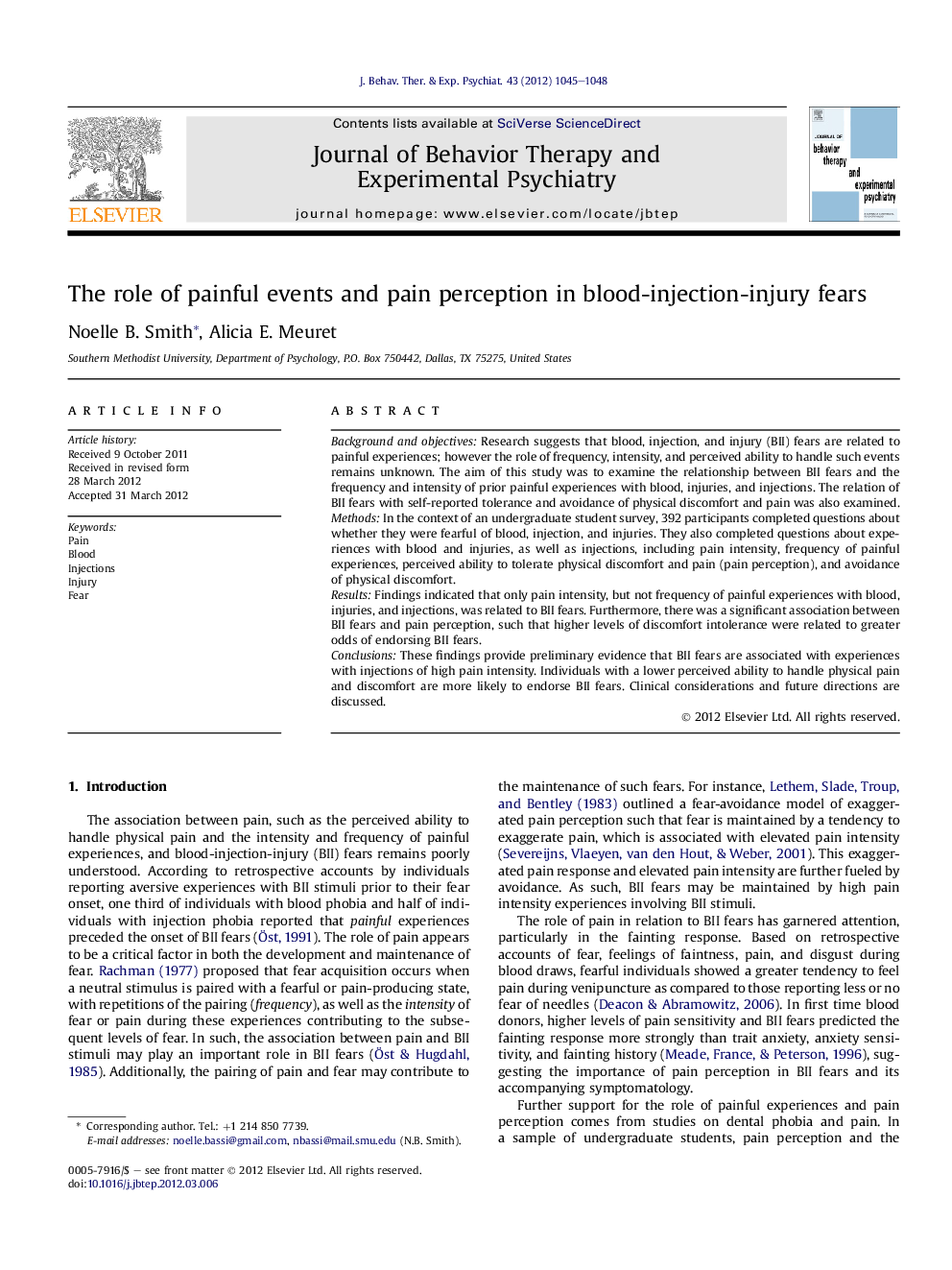| Article ID | Journal | Published Year | Pages | File Type |
|---|---|---|---|---|
| 910450 | Journal of Behavior Therapy and Experimental Psychiatry | 2012 | 4 Pages |
Background and objectivesResearch suggests that blood, injection, and injury (BII) fears are related to painful experiences; however the role of frequency, intensity, and perceived ability to handle such events remains unknown. The aim of this study was to examine the relationship between BII fears and the frequency and intensity of prior painful experiences with blood, injuries, and injections. The relation of BII fears with self-reported tolerance and avoidance of physical discomfort and pain was also examined.MethodsIn the context of an undergraduate student survey, 392 participants completed questions about whether they were fearful of blood, injection, and injuries. They also completed questions about experiences with blood and injuries, as well as injections, including pain intensity, frequency of painful experiences, perceived ability to tolerate physical discomfort and pain (pain perception), and avoidance of physical discomfort.ResultsFindings indicated that only pain intensity, but not frequency of painful experiences with blood, injuries, and injections, was related to BII fears. Furthermore, there was a significant association between BII fears and pain perception, such that higher levels of discomfort intolerance were related to greater odds of endorsing BII fears.ConclusionsThese findings provide preliminary evidence that BII fears are associated with experiences with injections of high pain intensity. Individuals with a lower perceived ability to handle physical pain and discomfort are more likely to endorse BII fears. Clinical considerations and future directions are discussed.
► We examined painful experiences and pain perception in blood-injection-injury fears. ► Intensity of painful experiences with injections was related to fears. ► Perceived ability to handle physical pain was also related to fears. ► Frequency of painful experiences with BII stimuli was not related. ► Targeting the evaluation of pain may be helpful in treatment of BII fears.
